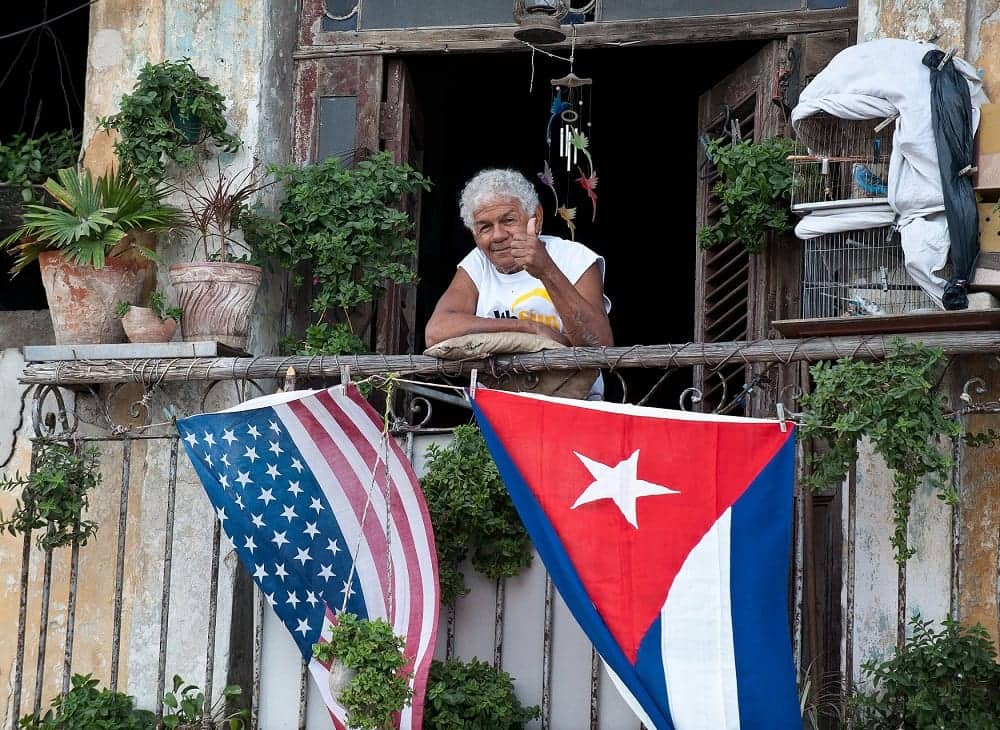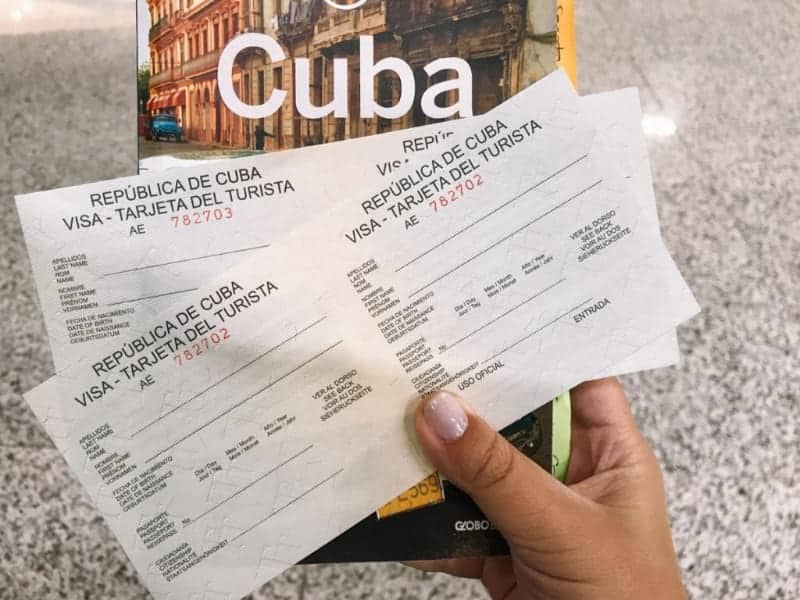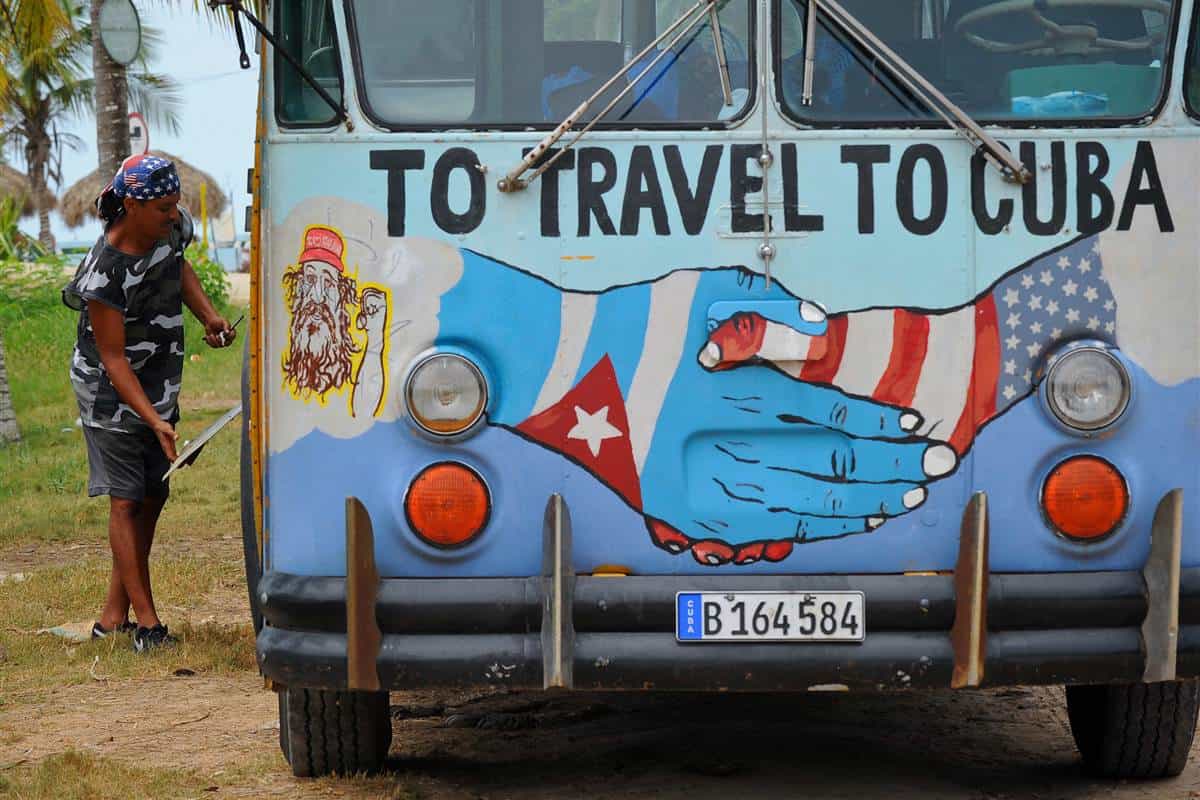With its rich history, vibrant culture, and captivating beaches, Cuba has long intrigued American travelers. While U.S. travel restrictions to Cuba have evolved, the “Support for the Cuban People” category remains a compelling avenue for Americans seeking an immersive and purposeful experience on the island.
Under this general license, American travelers have the opportunity to embark on a transformative journey that goes beyond typical tourist activities. By engaging in a range of meaningful interactions and activities that support civil society, promote independence, and foster connections with the Cuban people, visitors can contribute to the island’s social, economic, and cultural development.
This article will explore the intricacies of traveling to Cuba under the “Support for the Cuban People” license. We will delve into the specific requirements, provide concrete examples of qualifying and disqualifying activities, and offer other Cuba travel tips to align with what the license allows.
The 12 General Licenses to Travel to Cuba
Before getting into the details of the Support for the Cuban People license, let’s talk about context.
According to the regulation 31 CFR § 515.560(a) by the U.S. Department of the Treasury’s Office of Foreign Assets Control (OFAC), all US travelers to Cuba require either a General or Specific License.
A General License grants automatic authorization to participate in specific activities under defined terms and conditions. These licenses are self-executing, meaning individuals are not required to seek approval from OFAC to engage in the authorized activities.
Support for the Cuban People is one of the twelve General Licenses authorized by OFAC. Just FYI, here is the complete list of General Licenses for travel to Cuba:
- Family visits
- Official government business
- Journalistic activity
- Professional research and meetings
- Educational activities
- Religious activities
- Public performances, clinics, workshops, athletic or non-athletic competitions, and exhibitions
- Support for the Cuban people
- Humanitarian projects
- Activities of private foundations or research or educational institutes
- Exportation, importation, or transmission of information or information materials
- Certain export transactions
When your planned activities in Cuba do not meet the criteria outlined in any General License, you must apply for an OFAC Specific License. But that’s a different story.
The Support for the Cuban People License
The Support for the Cuban People license covers travel activities intended to strengthen civil society in Cuba. This license requires the traveler to engage in a full-time schedule of activities in Cuba that:
- Foster closer connections with the Cuban people,
- Contribute to the development of Cuban civil society, or
- Advocate for the independence of the Cuban people from the government; and
- Involve meaningful engagement and interaction with individuals in Cuba.
Also, the traveler’s itinerary should not allow for excessive free time or recreational activities beyond what is compatible with the full-time schedule.
All this sounds fuzzy, right? And it is. But let’s try to get into the details.
Activities that Qualify for the Support for the Cuban People License
The OFAC’s regulation itself provides examples of activities that qualify for the Support for the Cuban People license:
Staying in a room at a rented accommodation in a private Cuban residence (casa particular), eating at privately-owned Cuban restaurants (paladares), and shopping at privately-owned stores run by self-employed Cubans (cuentapropista) are examples of activities that qualify for this general license.
But, with so many things to do in Havana, you will want to do more than just sleep, eat, and buy souvenirs. Here are examples of activities that fall under the Support for the Cuban People Category:
- Renting bicycles to explore the streets of Havana and visit independent art galleries.
- Taking tours offered by privately owned businesses.
- Participating in art exhibitions, music performances, dance workshops, or other cultural events involving Cuban artists, musicians, or performers.
- Supporting privately-owned businesses on the island in any meaningful way.
- Engaging in volunteer activities, such as working with local community organizations, assisting in social welfare programs, or supporting sustainable development initiatives.
- Meeting with non-governmental organizations (NGOs) representatives, independent media outlets, or grassroots community groups to learn about their work and provide support or assistance.
The bottom line is that you must engage in an itinerary to promote independent activity to strengthen civil society in Cuba.
But will engaging in a few of these activities be enough to qualify my trip for the Support for the Cuban People license? Unfortunately, no.
You must have a full-time schedule.
What is a Full-Time Schedule According to OFAC?
OFAC won’t say how many hours constitute a full-time schedule. Their definition of a full-time schedule is, in fact, pretty vague. They will only say that:
The traveler’s schedule of activities should not include free time or recreation in excess of that consistent with a full-time schedule.
In practical terms, the traveler should have a pre-planned itinerary with sufficient activities to occupy a significant portion of their time in Cuba. The activities should align with the purpose of the license, which is to support the Cuban people, promote independence, and enhance contact with local individuals.
This requirement intends to ensure that the traveler’s visit to Cuba is purposeful and focused on meaningful interactions and support for the Cuban people rather than primarily for tourism or leisure. While some leisure time or recreational activities may be allowed within the schedule, they should not exceed what is considered reasonable and consistent with a full-time schedule of engaging activities.
Regarding how many hours the schedule should have, we say that at least 6 hours.
Activities That Can Disqualify Your Trip for the Support for the Cuban People License
There are three things you must avoid when traveling to Cuba under the Support for the Cuban People license:
- Engaging primarily in leisure activities (e.g., staying at a beach resort for a week).
- Staying at an accommodation on the Cuba Prohibited Accommodations List. The CPA lists properties in Cuba owned or controlled by the Cuban government or the Cuban Communist Party.
- Purchasing goods or services from the entities associated with the Cuban military, intelligence, or security services. The list includes specific ministries, holding companies, hotels, tourist agencies, marinas, stores, and other entities.
Check the lists of prohibited accommodations and entities before booking your trip because they are subject to change.
Why is Support for the Cuban People the Most Popular License for US Travelers
The Support for the Cuban People is the only General License the average independent traveler can use. It also offers privileges that other licenses don’t:
- Flexibility: The “Support for the Cuban People” category provides a broad scope of activities travelers can engage in, allowing for greater flexibility and a wide range of options. This license enables individuals to participate in various cultural, educational, and humanitarian activities and support local businesses and civil society in Cuba.
- Cultural exchange: Many U.S. travelers are interested in experiencing the vibrant Cuban culture, interacting with the local population, and gaining a deeper understanding of the country’s history, traditions, and way of life. The “Support for the Cuban People” license encourages these cultural exchanges and facilitates meaningful connections with the Cuban people.
- Positive impact: Traveling under the “Support for the Cuban People” category allows U.S. visitors to contribute to Cuban society positively. By engaging with local communities, supporting private businesses, and participating in humanitarian projects, travelers can actively contribute to the economic and social development of the Cuban people.
Do You Need to Keep Records of Your Trip to Cuba?
Yes, you must retain documentation of your trip to Cuba for five years, including receipts, itineraries, photos, or any other relevant record.
However, please notice that the chance that an US official will ask you for this documentation is slim. In fact, we have never heard of it (which does not mean it can’t happen to you).
Do You Need a Sponsoring Organization Under the Support for the Cuban People License?
Contrary to what many travel agencies to Cuba say, you don’t actually need a sponsoring organization to travel to Cuba under the Support for the Cuban People license.
A travel company to Cuba can indeed help arrange an itinerary that complies with the Support for the Cuban People license, but it’s not a legal requirement. In fact, the sole responsibility of complying with the US law will fall on the traveler, not the travel company.
Steps to Travel to Cuba Using the Support for the Cuban People License
Visiting Cuba under the Support for the Cuban People license is a little more complicated than your average trip to somewhere else. Still, the process is relatively simple:
Step 1 – Get the Cuban Tourist Card
The Cuban government requires all visitors to get the Cuban Tourist Visa before arriving at Havana Airport.
We recommend purchasing it from EasyTouristCard.
Step 2 – Get Health Travel Insurance
Health travel insurance is another thing you must bring to Cuba. It is, in fact, an entry requirement. You can get it from Insubuy at the cheapest price.
Step 3 – Book your flight and self-certify under the Support for the Cuban People license
Most likely, your airline or travel agency will ask you to declare your travel license at some point during the booking process.
We suggest Skyscanner to find the best flights from the US to Cuba.
Step 4 – Book your accommodation
Book your hotel or “casas particulares” (sort of Airbnbs in Cuba). As mentioned earlier, avoid staying at any accommodation prohibited by the US government.
You can also use Skyscanner to find and book hotels and “casas particulares” in Cuba. “Casas particulares” are way more affordable than hotels and the best option for travelers wanting to lower the cost of a trip to Cuba.
Step 5 – Book the tours
Although you don’t need a sponsoring company to plan your itinerary in Cuba, they can certainly help you find qualifying activities. You can explore some of the qualifying activities on our tour marketplace.
Bottom Line: It’s Legal to Travel to Cuba
The “Support for the Cuban People” license aligns with U.S. regulations and allows travelers to visit Cuba without violating the embargo restrictions. It offers a legitimate pathway for U.S. citizens to explore the country while adhering to the specific requirements outlined in the license.
No one knows when will be a better time to visit Cuba, but we know you can do it now and legally.
If you want to know more about how to travel legally to Cuba, check out our ultimate guide for Americans traveling to Cuba.
Essential Travel Logistics For Cuba
Cuban Tourist Card – If your Cuban Tourist Card (a.k.a Cuban Tourist Visa) isn’t bundled into your airline ticket or travel package, buy it only through EasyTouristCard.
Travel Health Insurance – Travel medical insurance is an entry requirement for Cuba, so you can’t skip it. Travelers can get travel health insurance for Cuba via Insubuy. Travel protection benefits such as trip interruption and cancellation, baggage delay insurance, etc., are not required.
Essential Items to Pack – Bring the essential travel necessities that you may not be able to get in Cuba:
- First aid kit
- Hand sanitizer
- Face masks
- Water bottle with filter
- Sunscreen
- Mosquito repellent
- Pin adapter (for Europeans)
- Travel guide
- Spanish-English phrasebook
- Suggested Reading: The Cubans: Ordinary Lives in Extraordinary Times
Read our complete packing list for Cuba.
Find Accommodations – Find hotels or casas particulares (private accommodations) on Skyscanner, which lists thousands of accommodations available in Cuba.
Book Your Flight – Book cheap flights to Cuba on Skyscanner, our favorite flight search engine to find deals on flights to Cuba.




